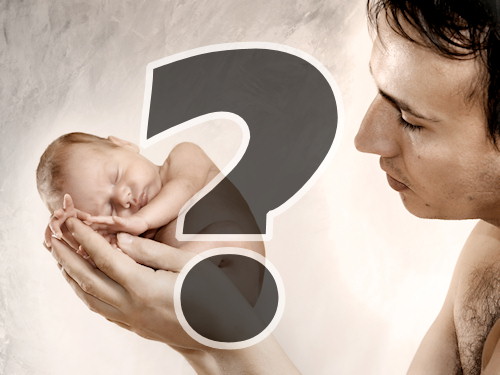LifeNews recently published an article by Mark Leach about what happened when his baby was born with Down syndrome. Leach describes how he and his wife felt abandoned by the medical establishment and how the hospital gave them outdated and scant information about Down syndrome.
In response to his experience, and the experiences of many other Down syndrome parents, he has become the bioethics specialist at the National Center for Prenatal & Postnatal Down Syndrome Resources, and works to get positive, life-affirming information into the hands of new Down syndrome parents and those who go through prenatal testing for Down syndrome. Leach says:
Parents have long described receiving the [Down syndrome] diagnosis negatively. A study of moms reported awful stories both pre- and post-natally. A study just last year reported that parents have a negative experience by a ratio of 2.5 to 1–so for every 100 sets of parents who had a positive experience with their health team, there were 250 who had a negative one.
In the book Testing Women, Testing the Fetus: the Social Impact of Amniocentesis in America, researcher Rayna Rapp documents three such negative experiences.
One mother, whose child with Down syndrome, Amelia, was four at the time of the interview, related the following:
So they diagnosed Amelia right away, on the delivery table. She was barely out, I barely got a chance to catch my breath or marvel at my first baby when the doctor pours this bad news all over us. “She’s got Down syndrome,” he says to us, very coldly. And after he tells us about blood testing and confirmations and all this stuff, we say to him, “But what does this mean? What should we expect?” And just as coldly he says, “Don’t expect much. Maybe she’ll grow up to be an elevator operator. Don’t expect much.” We clung to each other and cried. (Rapp 263)
 This appalling treatment no doubt added to the confusion and grief that the parents felt over finding out that their baby would face unforeseen challenges in life. If this doctor was so callous towards them after the birth of their baby, one wonders how he would treat his patients who tested positive for a Down syndrome child and were still pregnant. Would he push them towards abortion?
This appalling treatment no doubt added to the confusion and grief that the parents felt over finding out that their baby would face unforeseen challenges in life. If this doctor was so callous towards them after the birth of their baby, one wonders how he would treat his patients who tested positive for a Down syndrome child and were still pregnant. Would he push them towards abortion?
Another mother spoke about how angry her doctor was when she gave birth to a baby with Down syndrome:
My doctor was so angry with me. He couldn’t believe I didn’t take that test. “How could you let this happen?” He yelled at me. “You’re 40!” But I think something else: even though he’s mentally retarded, he could be a good person… It’s just like finding out you have a new job. You just do it, and you accept it, that’s all there is to it. (Rapp 263)
Even more heartless was the reaction of a third doctor, to another couple whose baby had Down syndrome:
She was tiny, but she was great, like she was just the cutest thing. And then my husband comes in, and he looked weird and immediately he said, “The baby, something is wrong…” And all I could think of was that she’s blind, I guess that was probably the worst thing I could ever have imagined. But the doctor had just called him and told him that Rose was a Mongoloid. We took a half hour to get it out of him, like he couldn’t finish telling me the story, and then the doctor came in and said, “What your husband just told you is right.” He was, like, very down on the whole thing, very negative. He said, “The only blessing is that they don’t tend to live very long.” So he thought it would be a good thing if our new baby would die. What more can I say? (Rapp 266 – 267)
These responses by doctors show how vitally important the work of the National Center for Prenatal & Postnatal Down Syndrome Resources is. Pro-lifers should support families with children who have Down syndrome or other disabilities, and support organizations that help them.
Source: Rayna Rapp Testing Women, Testing the Fetus: the Social Impact of Amniocentesis in America (New York: Routledge, 1999)







